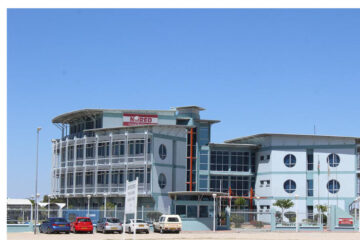Martin Endjala
In 2023, the Ministry of Industrialisation and Trade (MIT) accomplished significant milestones, setting the stage for further progress in 2024.
Chief Communications Officer, Elijah Mukobonda, explains that MIT’s primary objective is to foster sustainable social and economic development by creating an enabling environment that benefits all citizens.
This mission is accomplished through the formulation of conducive policies, legislation, and strategies, aimed at facilitating business operations, promoting investments, establishing industries, supporting Micro, Small, and Medium Enterprises (MSMEs), and expanding and developing export markets and products.
During the review period, Mukobonda highlighted the ministry’s creation of the National Informal Economy, Startups, and Entrepreneurship Development Policy, designed to bolster enterprise growth and cultivate an entrepreneurial spirit, particularly within specific business sectors.
Additionally, the ministry introduced the Sustainable Special Economic Zone Bill, aligned with the 2022-2027 National Policy on Sustainable Special Economic Zones.
This bill gained cabinet approval, positioning Namibia to benchmark its Industrial Policy Implementation framework against regional and international best practices, and fostering knowledge exchange among national and international experts to enhance effective industrial policy implementation.
Another noteworthy accomplishment Mukobonda highlighted is the Property Practitioners Bill, poised to replace the Namibia Estates Agents Act, currently in its advanced stages. Likewise, the Competition Bill is in its final stages of alignment with the National Competition Policy 2020-2025.
Furthermore, the ministry witnessed the enactment and promulgation of the Metrology Act, legislation that establishes legal units of measurement and metrology standards, ensuring compatibility with international measurement standards.
This act designates the Namibia Standards Institution (NSI) as the leading metrology authority in Namibia, repealing the Trade Metrology Act of 1973 and its amendments.
In the 2023/24 period, MIT embarked on a gradual drive to bolster the industrial sector, promoting investments through the necessary legal and regulatory foundations to fully industrialize Namibia.
This effort aims to strengthen trade at local, regional, continental, and global levels while facilitating the growth of small and medium enterprises.
Mukobonda highlighted the revival of the Equipment Aid Scheme, a current ministry program that has aided over 4,000 entrepreneurs since its inception.
The scheme empowers entrepreneurs to acquire equipment and machinery, enhancing the quality of their products and services, productivity, and competitiveness, primarily in the manufacturing sector.
Moreover, the ministry continued to prioritize the Industrial Upgrading Modernisation Program (IUMP), which focuses on enhancing production and supply capacity, efficiency, and competitiveness of Namibian-owned manufacturing firms.
This program was realized through the SADC Trade Related Facility project. Additionally, the biomass project construction was completed, aiming to produce animal feed, packaged charcoal, and biochar from invader bush.
Mukobonda concluded by saying the ministry’s recognition of the pivotal role that sectors like logistics, tourism, manufacturing, and agriculture must play for Namibia to achieve its vision of becoming an industrialized country with a knowledge-based society by the year 2030.




